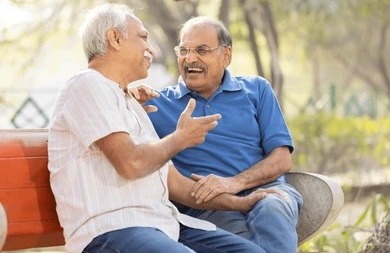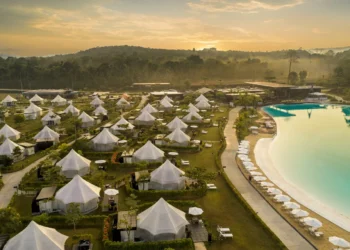Aging is a natural process that begins at birth and concludes with our final breath. Reaching the age of 60 and beyond can seem intimidating for those approaching it. However, the real challenge of aging lies in our lack of preparation for this stage of life. Although we grow up surrounded by older individuals, we are often taken aback when we find ourselves in their shoes.
At this so-called “old age,” we frequently struggle with regrets about our lost youth, wondering how it slipped away so quickly and where the time has gone. We may also face anxiety about the future, anticipating inevitable limitations and the nearness of death.
This absence of preparation and acceptance often results in feelings of unease, leading many to spend their later years grappling with anxiety and depression as they confront the physical limitations that accompany aging. As a result, the experience of aging becomes less enjoyable, affecting what is known as the quality of aging.
The World Health Organization (WHO) defines active aging as the capacity of older adults to live a life where opportunities for health, participation, and security are maximized. WHO is actively promoting this concept through various policies and programs.
While improving external factors—like social support and addressing societal issues related to aging—is vital, equal attention must be given to the inner well-being of the aging individual. It is important to help them develop a positive mindset toward aging.
In Dharmic traditions, life is viewed as progressing through various stages, each with its own Dharma, which refers to the natural laws and responsibilities of life. Aligning oneself with this Dharma reduces resistance, enabling a smoother, more fulfilling experience. The Dharma of old age is a time for seeking wisdom, requiring qualities such as self-reflection, acceptance, living in the present, and practicing generosity.
Practices that nurture these values can foster an attitude of mindful gratitude. Although instilling mindfulness in older adults may be challenging, it offers significant benefits, such as reducing internal inflammation that accelerates aging and contributes to age-related diseases. Furthermore, addressing the psychological stress of loneliness and isolation is crucial, as these can lead to mental health issues if not properly managed.
An attitude of gratitude, when practiced, enhances happiness, promotes social interaction, and even lowers cholesterol levels and the risk of cardiovascular diseases. Combined, mindfulness and gratitude, when practiced diligently, especially among older adults, can help reinforce autonomy over their well-being and improve quality of life. From this place of independence, they can find purpose by giving back generously to society, creating a sense of importance and community. This, in turn, embodies the true essence of active aging.
We are all destined to grow older, and attaining old age is a privilege that many do not experience. However, it brings its own set of challenges. Financial stability alone is insufficient to face this phase of life. Cultivating a mindset of mindful gratitude is just as crucial, and the sooner we begin, the better. By preparing our inner selves, we are better equipped to fully embrace the external support available to us.
Let us start nurturing this mindset and attitude today, allowing us to approach aging with grace and share the journey openly. Aging is not something to dread but an experience to welcome. The best time to begin is now.
All the information and ideas shared above are provided by Dr. Mugilarasi Arasarethinam, Hub Leader of the Active Ageing Impact Lab at Taylor’s University. The lab is dedicated to promoting a fulfilling and meaningful life for senior citizens in their golden years. It focuses on helping them achieve financial security, maintain both physical and mental health, access quality care services, and engage in lifelong learning to ensure a vibrant and rewarding aging experience.
Follow us on Instagram, Facebook or Telegram for more updates and breaking news.










